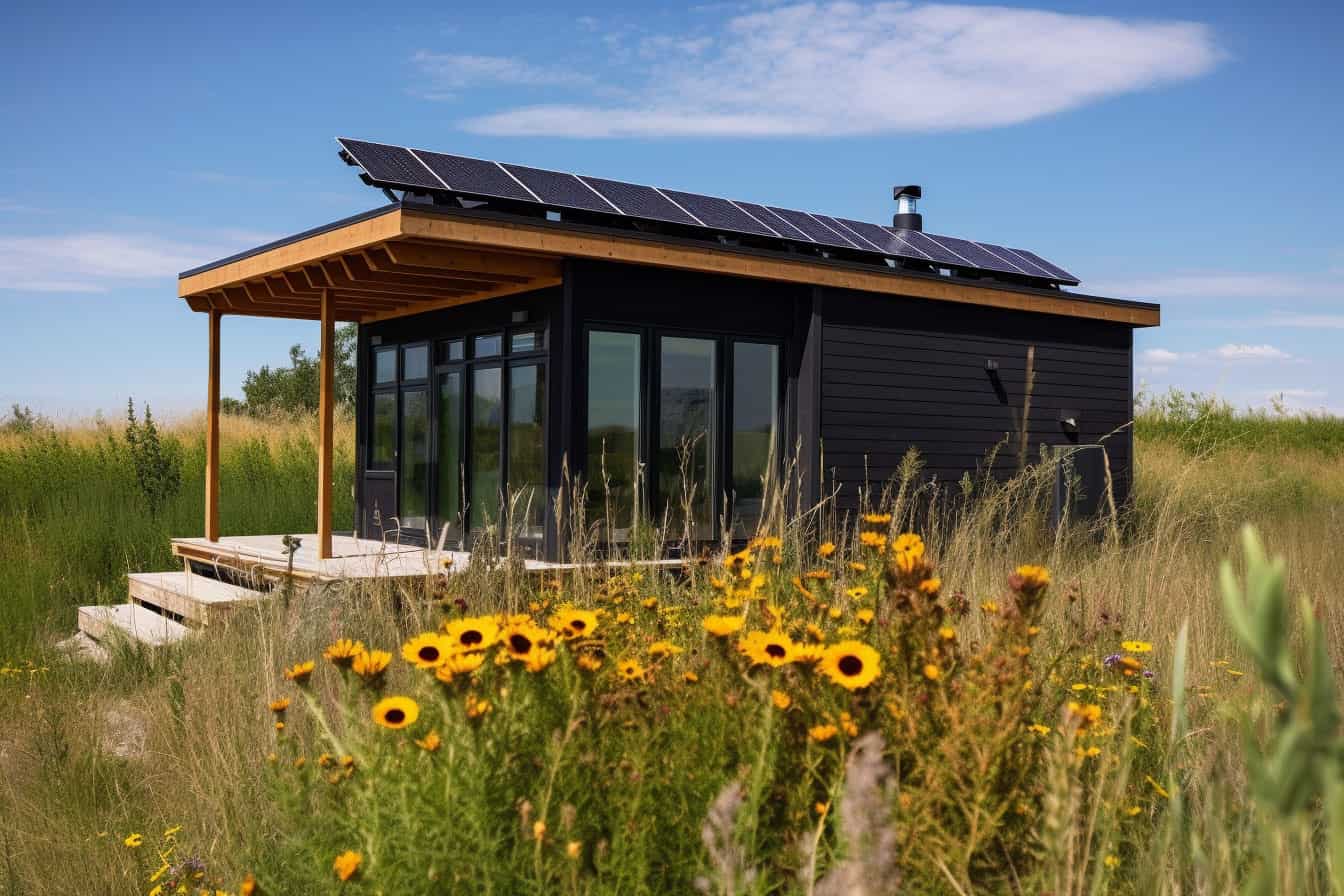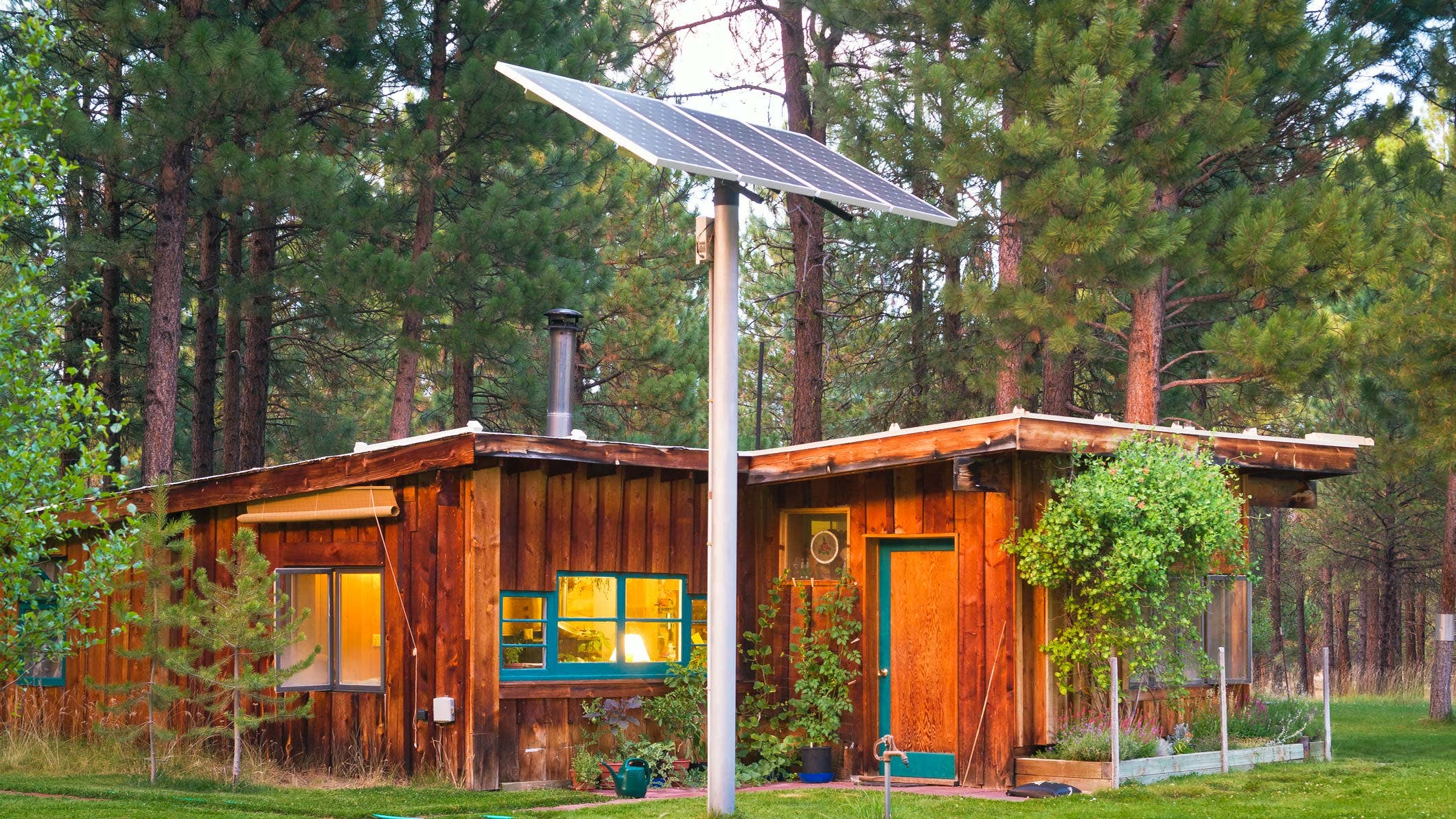What is living off the grid mean? This intriguing concept involves disconnecting from traditional infrastructure and embracing self-sufficiency, immersing oneself in nature’s embrace. Whether driven by environmental concerns, a desire for independence, or simply a yearning for a simpler life, living off the grid offers a unique and transformative experience.
Embarking on an off-grid lifestyle entails a multifaceted approach, encompassing energy generation through solar or wind power, water acquisition and purification, and waste management. While challenges such as reliance on natural resources and isolation may arise, the rewards of self-sufficiency, environmental stewardship, and a profound connection with the natural world make this path an alluring one for many.
Definition of Living Off the Grid

Living off the grid refers to a lifestyle that seeks to disconnect from modern conveniences and infrastructure, such as electricity, running water, and centralized sewage systems. It involves relying on self-sufficiency and sustainable practices to meet basic needs.
Motivations for Living Off the Grid
Individuals choose to live off the grid for various reasons, including:
- Environmental concerns and a desire to reduce their carbon footprint
- A search for greater self-reliance and independence
- A yearning for a simpler and more sustainable lifestyle
- Disillusionment with modern society and its complexities
Key Aspects of Living Off the Grid

Living off the grid entails self-sufficiency and disconnection from conventional utility services. This lifestyle requires careful planning and implementation of essential components to ensure a comfortable and sustainable existence.
The key aspects of living off the grid include:
Energy Sources
Off-grid living relies on alternative energy sources to generate electricity and heat. Common options include:
- Solar power:Utilizing photovoltaic panels to convert sunlight into electricity.
- Wind power:Harnessing wind energy through turbines to generate electricity.
- Hydropower:Using the flow of water to generate electricity.
- Biogas:Generating methane gas from organic waste to produce electricity or heat.
Water Acquisition and Purification
Access to clean water is crucial for off-grid living. Methods for water acquisition and purification include:
- Rainwater harvesting:Collecting and storing rainwater for various uses.
- Well drilling:Accessing groundwater through a drilled well.
- Spring or stream water:Utilizing natural water sources with proper purification measures.
- Water purification systems:Employing filtration, distillation, or other methods to purify water from various sources.
Waste Management
Proper waste management is essential for maintaining a clean and healthy off-grid environment. Methods include:
- Composting:Converting organic waste into nutrient-rich soil amendment.
- Wastewater treatment:Utilizing septic tanks or other systems to treat wastewater.
- Recycling:Separating and recycling recyclable materials.
- Biodegradable waste disposal:Using biodegradable materials and ensuring proper disposal of non-biodegradable waste.
Challenges and Rewards
Living off the grid involves embracing challenges while reaping significant rewards. Understanding these aspects is crucial for anyone considering this lifestyle.
Challenges
Individuals living off the grid face several challenges:
- Reliance on Natural Resources:Dependence on natural resources, such as water, food, and energy, can be both a challenge and a benefit. While it promotes self-sufficiency, it also requires skills and knowledge to manage resources effectively.
- Isolation and Lack of Access to Amenities:Living off the grid often means living in remote areas, leading to isolation and limited access to amenities like healthcare, education, and transportation. This can impact social connections and the availability of essential services.
Rewards
Despite the challenges, living off the grid offers numerous rewards:
- Self-Sufficiency and Independence:Individuals living off the grid develop self-sufficiency by producing their own food, generating their own energy, and managing their resources. This fosters a sense of independence and control over one’s life.
- Connection with Nature and the Environment:Living close to nature promotes a deep connection with the environment. Individuals can experience the beauty and rhythms of nature firsthand, fostering a greater appreciation for the ecosystem.
Sustainability and Environmental Impact: What Is Living Off The Grid Mean

Living off the grid can have significant environmental benefits. Off-grid homes typically rely on renewable energy sources, such as solar and wind power, which do not produce greenhouse gases. This can significantly reduce an individual’s carbon footprint. Additionally, off-grid living often involves a more conscious approach to resource consumption.
Residents may choose to conserve water and energy, and to use biodegradable and reusable products.
Conservation of Resources
Living off the grid often requires individuals to be more mindful of their resource consumption. Without access to municipal water and electricity, residents must find ways to conserve these resources. This can lead to the adoption of more sustainable practices, such as rainwater harvesting, composting, and using energy-efficient appliances.
By reducing their reliance on external resources, off-grid residents can help to preserve the environment and reduce their impact on natural ecosystems.
Legal and Regulatory Considerations
Living off the grid involves various legal and regulatory considerations that must be addressed to ensure compliance and avoid potential issues. These considerations include:
Building Codes and Zoning Restrictions
Off-grid properties are often located in rural areas with specific building codes and zoning regulations. These regulations may dictate the size, design, and placement of structures on the property. It is crucial to research and adhere to these regulations to obtain necessary permits and avoid potential legal penalties.
Property Ownership and Land Use Regulations
Ownership of off-grid properties may come with certain restrictions on land use. Zoning laws may limit the activities allowed on the property, such as farming, livestock grazing, or commercial operations. It is essential to understand these restrictions and ensure that the intended use of the property is compliant.
Compliance with Environmental Regulations, What is living off the grid mean
Off-grid living often involves the use of alternative energy sources and waste management systems. These systems must comply with environmental regulations to protect natural resources and prevent pollution. Regulations may cover aspects such as water usage, sewage disposal, and the handling of hazardous materials.
Community and Social Aspects

Living off the grid can involve a shift in social dynamics, presenting both opportunities and challenges for community building and socialization.One significant aspect is the formation of close-knit communities among individuals who share similar values and lifestyles. These communities often foster a sense of belonging and support, with members collaborating on projects, sharing resources, and providing emotional encouragement.
Building Connections with Like-minded Individuals
Living off the grid often attracts people with a passion for self-sufficiency, sustainability, and a desire for a simpler life. These shared interests provide a common ground for building strong connections and friendships.
Sharing Resources and Knowledge
In off-grid communities, sharing resources and knowledge is crucial for survival and well-being. Members often pool their skills, tools, and resources to support each other’s projects and endeavors. This collaborative spirit fosters a sense of interdependence and resilience.
Challenges and Opportunities for Socialization
While off-grid living can offer a sense of community, it can also pose challenges for socialization. Distance from urban centers and limited access to transportation can make it difficult to maintain regular contact with friends and family outside the immediate community.
However, this can also lead to deeper connections within the off-grid community and a greater appreciation for face-to-face interactions.
Planning and Preparation
Planning and preparing for an off-grid lifestyle requires careful consideration and comprehensive preparation. It involves financial planning, acquiring essential skills and knowledge, and establishing a reliable support system.
Financial Considerations and Budgeting
Living off the grid can significantly impact your financial situation. It’s crucial to assess your financial resources and create a realistic budget that accommodates the costs associated with an off-grid lifestyle, such as purchasing land, building a home, and installing infrastructure.
Acquiring Necessary Skills and Knowledge
Off-grid living demands a diverse set of skills, including home maintenance, gardening, and energy generation. Consider taking courses, workshops, or apprenticeships to gain practical knowledge and develop the necessary competencies.
Establishing a Support System
Building a strong support system is essential for off-grid living. Connect with neighbors, local businesses, and organizations that can provide assistance and resources when needed. Establishing a network of like-minded individuals can also offer emotional support and a sense of community.
Final Summary
Living off the grid is not merely an escape from society but a conscious choice to embrace a sustainable and fulfilling existence. By embracing self-reliance, individuals can minimize their environmental impact, foster a deep appreciation for nature, and forge a life in harmony with the rhythms of the earth.
User Queries
What are the key motivations for living off the grid?
Environmental concerns, a desire for self-sufficiency, and a yearning for a simpler, more sustainable life are common reasons for choosing an off-grid lifestyle.
What are the essential components of an off-grid lifestyle?
Energy generation, water acquisition and purification, and waste management are crucial aspects of living off the grid.
What are the challenges of living off the grid?
Reliance on natural resources, isolation, and limited access to amenities are potential challenges that off-grid dwellers may encounter.
What are the rewards of living off the grid?
Self-sufficiency, environmental stewardship, and a deep connection with nature are some of the fulfilling rewards of this lifestyle.
